Search
Did you mean: Oxus?
Search Results

Article
Prehistoric Hunter-Gatherer Societies
Hunter-gatherer societies are – true to their astoundingly descriptive name – cultures in which human beings obtain their food by hunting, fishing, scavenging, and gathering wild plants and other edibles. Although there are still groups of...

Definition
Paleolithic
The Palaeolithic ('Old Stone Age') makes up the earliest chunk of the Stone Age – the large swathe of time during which hominins used stone to make tools – and ranges from the first known tool use roughly 2,6 million years ago to the end...
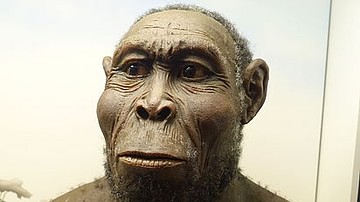
Definition
Homo Rudolfensis
Homo rudolfensis is an early human species that lived in East Africa between c. 2.5 and 1.8 million years ago. It is known from a handful of skull, jaw and teeth fragments that remind alternatingly of Homo or of Australopithecus and that...

Article
Prehistoric Alpine Stilt Houses
Alpine stilt houses are a unique and fascinating aspect of prehistoric architecture in the Alps, which provide valuable insights into the lives and culture of the ancient communities. The houses were built by prehistoric communities living...
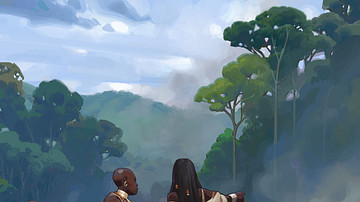
Definition
Bantu Migration
The Bantu migration from their origins in southern West Africa saw a gradual population movement sweep through the central, eastern, and southern parts of the continent starting in the mid-2nd millennium BCE and finally ending before 1500...
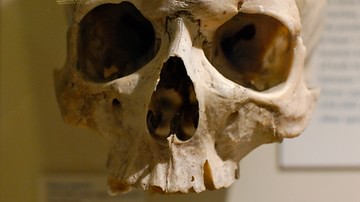
Definition
Homo Sapiens
Homo sapiens ('wise man'), or modern humans, are the only species of human still around today. Despite having invented countless ways of labelling the world around us, we have so far done a surprisingly poor job at defining ourselves. Originating...
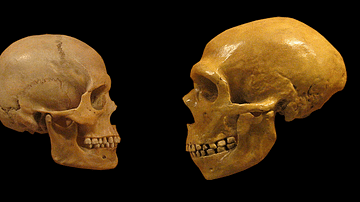
Article
The Neanderthal-Sapiens Connection
In May 2010, after years of intense discussions surrounding possible fossils of mixed Homo sapiens and Neanderthal descent floating around the scientific community, a team led by Svante Pääbo of the Max-Planck Institute for Evolutionary Anthropology...

Definition
Mesopotamia
Mesopotamia (from the Greek, meaning 'between two rivers') was an ancient region located in the eastern Mediterranean bounded in the northeast by the Zagros Mountains and in the southeast by the Arabian Plateau, corresponding to modern-day...
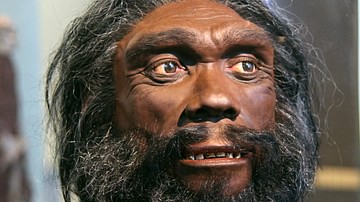
Definition
Homo Heidelbergensis
Homo heidelbergensis is an extinct species of human that is identified in both Africa and western Eurasia from roughly 700,000 years ago onwards until around 200,000 years ago – fitting snugly within the Middle Pleistocene. Named for a piece...
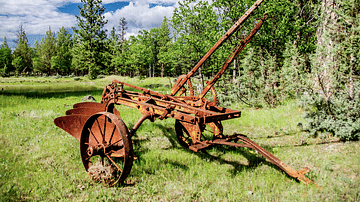
Article
Agriculture in the British Industrial Revolution
Agriculture, like most other areas of working life, was greatly affected by the machines invented during the Industrial Revolution. Agriculture in Britain and elsewhere had made leaps forward in the 18th century, and its success released...